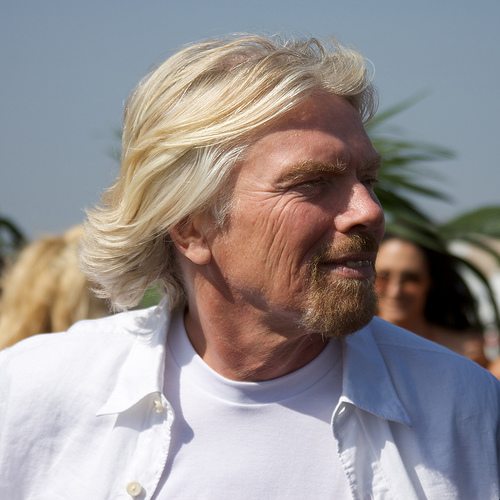

Economy
Branson and Polman among business leaders calling for tough emission targets
Business leaders, including Richard Branson and Paul Polman, of Virgin and Unilever respectively, have called for tough emission targets to avoid dangerous levels of climate change. The B Team, which is made up of international business leaders, wants to see a net-zero emissions target for 2050.
In a letter addressed to Christiana Figueres, executive secretary of the UN Framework Convention on Climate Change (UNFCCC), the business leaders state, “Our ambition – a global goal of net-zero greenhouse gas emissions by 2050 – builds on recent talks at the COP20 climate summit in Lima, and is grounded on an assessment of the latest scientific research, business risks and the economic costs of failing to keep within the 2C threshold.”
Climate scientists have warned that global temperatures rising beyond the internationally agreed 2C limit could result in irreversible and unpredictable climate change impacts. World leaders are set to hold climate talks at COP21 in Paris late this year, with the hope of negotiating a global agreement on climate change.
“The recent Intergovernmental Panel on Climate Change (IPCC) assessment concluded that achieving net-zero greenhouse gas emission by 2100 will provide only a 66% chance of limiting global warming to 2C,” the letter adds.
“We believe that a 1-in-3 change of failure is unacceptable, given the potential for catastrophic climate impacts. Acting decisively and immediately, with a clear target of net-zero greenhouse gas emissions by 2050, is the only way we can lower this risk and avoid ballooning costs.”
The B Team aims to catalyse a better way of doing business, and argues that businesses that choose to work with them will see that in the long run what’s better for the planet and its people is also better for business.
The group is also calling for businesses and governments to adopt “meaningful and effective” carbon pricing, an end to fossil fuel subsidies, and for the benefits of responses to climate change to flow to vulnerable and impoverished communities that are disproportionately affected by climate change.
Branson added, “Taking bold action on climate change simply makes good business sense. It’s also the right thing to do for people and the planet.”
The letter concludes that such a commitment would give governments, businesses, investors and communities the certainty needed to plan and invest for the future.
Photo: Jeff Rizzo via Flickr
Further reading:
Europe 2030 emission targets need to go further, says IPCC vice-chair
EU agrees on 40% emission cut climate target
Stronger EU renewable energy targets could rid need for subsidies


 Features11 months ago
Features11 months agoEco-Friendly Cryptocurrencies: Sustainable Investment Choices

 Energy11 months ago
Energy11 months agoThe Growing Role of Solar Panels in Ireland’s Energy Future

 Energy10 months ago
Energy10 months agoGrowth of Solar Power in Dublin: A Sustainable Revolution

 Energy10 months ago
Energy10 months agoRenewable Energy Adoption Can Combat Climate Change



























